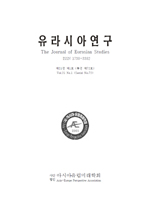- 영문명
- History on European Identity
- 발행기관
- 아시아.유럽미래학회
- 저자명
- 김복래(Bok-Rae Kim)
- 간행물 정보
- 『유라시아연구』제6권 제1호, 73~88쪽, 전체 16쪽
- 주제분류
- 사회과학 > 사회과학일반
- 파일형태
- 발행일자
- 2009.03.30
4,720원
구매일시로부터 72시간 이내에 다운로드 가능합니다.
이 학술논문 정보는 (주)교보문고와 각 발행기관 사이에 저작물 이용 계약이 체결된 것으로, 교보문고를 통해 제공되고 있습니다.

국문 초록
본고의 목적은 유럽 정체성을 역사적인 4단계로 세분하여 밝히는데 있다. EU의 조항들에 따르면, EU는 자유와 민주주의, 인권존중, 또 기본적 자유와 법치성의 원리에 근거하고 있다. 만일 이러한 근본적 원리를 위반하는 EU회원국이 있다면 그 회원국의 권리는 당장에 중지될 것이다. 아마도 유럽정체성의 정치적 핵심과제는 ‘다양성 속의 일치’이란 기본 명제 하에, 유럽문화의 다양성을 우호적으로 증진시키고, 공통된 문화유산을 상호적으로 보존하는 것일 것이다. 그러나 아무리 유럽정체성의 형성에 정치적 요소가 강하다고 해도, 인종.민족적인 배경이나 문화.역사적인 요소들도 마찬가지로 중요하다. 15세기 이래 공인된 역사적 구성물(historical construction)로서의 유럽의 정체성은 다음 두 가지로 요약될 수 있다. 즉 근대 초기에 유럽은 보편적 기독교 공화국(common wealth)으로 서방세계에 널리 알려졌으며, 또 18세기 계몽주의 이래 ‘유럽문화(European culture)’라는 개념이 정착되었다. 유럽이란 개념은 이중적 의미가 있다. 첫째는 지리적 개념으로 아프리카, 아시아와 유럽대륙으로 크게 삼분된다. 둘째는 문화적 개념이다. 만일 ‘민주주의가 유럽의 발명품’이라고 가정한다면, 이는 유럽대륙이란 지형적인 땅덩어리를 지목하는 것이 아니라, 유럽대륙문화를 구분 짓는 몇 가지 특징들을 언급하는 것이다. 유럽이란 개념의 발전사는 다음 4단계로 나누어진다. 첫째, 로마제국의 시대, 둘째, 기독교국(christendom)의 시대, 셋째, 유럽민족국가의 시대, 마지막은 양차대전이후부터 EU의 결성시대이다. 우리 현 마지막 세대가 할 수 있는 지상의 임무는 이전의 세 시기, 즉 비록 무력에 의해 성립되었으나 ‘팍스로마나(Pax Romana)’라는 태평성대를 이룩했던 로마제국의 평화롭고 종교적인 관용정신, 교황권과 황제권을 두 개의 정점으로 하는 기독교공화국의 초국가주의적 이상, 또한 민족주의의 갈등을 낳기는 했으나 19세기에 백화난만했던 근대의 민족문화 등 최상의 요소들을 잘 화합.융화시키는 것이다, 이러한 지상과제를 수행하는 과정에서 20세기 최고의 지성인 T. S. 엘리어트의 조언대로 유럽대학들이 필요불가결한 가교역할을 담당할 수 있을 것이라 확신한다. 사회적 수직이동 내지 신분상승의 최상보루인 교육은 유럽의 정체성 형성에도 중대한 역할을 수행하고 있으며, 향후에도 계속 그럴 것이다. 서문에서 지상의 ‘파라다이스’로 표현된 새로운 유럽의 건설은 비단 정치가나 사업가만의 문제는 아니다. 여성, 시인, 예술가, 신학자, 철학자 등 환경의 편에서 가난한 사람들의 입장을 대변하는 사람들의 목소리도 함께 반영되어야 한다. 기독교, 무슬림, 유태교 등 다른 공동체들과 함께 어우러진 목소리가 반드시 유럽의 영혼(European soul)을 표현해야 한다. 그러한 의미에서 첫째로 코즈모폴리턴적인 유럽대학과 둘째로-일상생활에서 조용한 혁명을 겪고 있는 에라스무스 세대를 포함한-범유럽인들을 모두 함께 아우르는 소위 ‘민중문화 속에서 유럽문화정체성이란 보물찾기’는 가장 성공적인 통합모델로 평가받는 EU의 토대를 더욱 공고하게 엮여주는 훌륭한 두 개의 가교역할을 할 수 있을 것이다.
영문 초록
The aim of this paper is to examine ‘European identity’ by dividing it into four historical categories: ancient Roman Empire, Latin Christendom, European nation-states, second world war and EU formation. According to EU articles, EU is primarily based on freedom, democracy, human rights and constitutional governmen systems. If a EU member-state violates any of them, this country’s right should be suspended. Probably, the major political mission of European identity is to promote the diversity of European culture, and to preserve common historical heritages in the name of ‘the unity in diversity’.
At the beginning, the formation of European identity was political and still very political. However, we cannot neglect the importance of racial or national backgrounds, cultural and historical patrimonies. As a historical construction recognized since the 15th century the European identity can be divided into two categories. First, it was known as universal Christian Commonwealth in early Modern Europe. Second, the concept of ‘European culture’ which could give a cultural identity to Europe was established in the 18th century. It was closely linked with secular philosophy; that is, Enlightenment.
In the notion of Europe there is a double meaning. First, it is basically geographical. The world can be divided into three continents: Africa, Asia and Europe. Second, it is very cultural. If we consider that the democracy is an ‘invention of Europe’, this phrase does mean several attributes which characterize European continental cultures. The development history of the notion of Europe can be divided into four categories: ancient Roman Empire, Latin Christendom, European nation-states, second world war and EU formation period. The task which faces our generation is to combine harmoniously, in this fourth, contemporary stage of European history, the best elements of the previous three, the peaceful, religious tolerance of the Roman Empire; the supranational appeal courts of Christendom, the powerful vernacular cultures of the modern age. And in this task, as T.S. Eliot reminded us, the universities of Europe have an indispensable role to play. In the introduction, the construction of a new Europe is ironically described as ‘a terrestrial paradise’. However, the construction of the EU is not only a main concern of politicians and businessmen. It is necessary to count well the true voices of women, poets, theologists, philosophers, etc. who speak eagerly on behalf of poor people and the environment. In this sense, the balanced role of cosmopolitan European universities and the sincere effort for searching European identities in European popular culture can consolidate the basis of the EU; that is, the most successful model of integration in the world.
목차
Ⅰ. 서론
Ⅱ. 유럽정체성의 역사
Ⅲ. 결론
참고문헌
키워드
해당간행물 수록 논문
참고문헌
관련논문
사회과학 > 사회과학일반분야 BEST
- AI와 디지털 문화 산업의 결합에서 저작권 및 윤리적 규범 준수의 필요성 연구
- 인공지능(AI)과 윤리
- 종합병원 간호사의 환자안전문화인식과 조직의사소통만족이 안전간호활동에 미치는 영향
사회과학 > 사회과학일반분야 NEW
- 윤리적 동기와 행동의 괴리: 공공봉사동기, 조직동일시, 비윤리적 친조직행동의 관계
- 디지털 리더십과 정치적 현저성이 공무원의 디지털 기술 활용의도에 미치는 영향: 디지털 기술 도입 수준의 매개효과를 중심으로
- 리더십 스타일이 공공봉사동기에 미치는 영향과 조직정체성의 매개효과 분석
최근 이용한 논문
교보eBook 첫 방문을 환영 합니다!

신규가입 혜택 지급이 완료 되었습니다.
바로 사용 가능한 교보e캐시 1,000원 (유효기간 7일)
지금 바로 교보eBook의 다양한 콘텐츠를 이용해 보세요!



